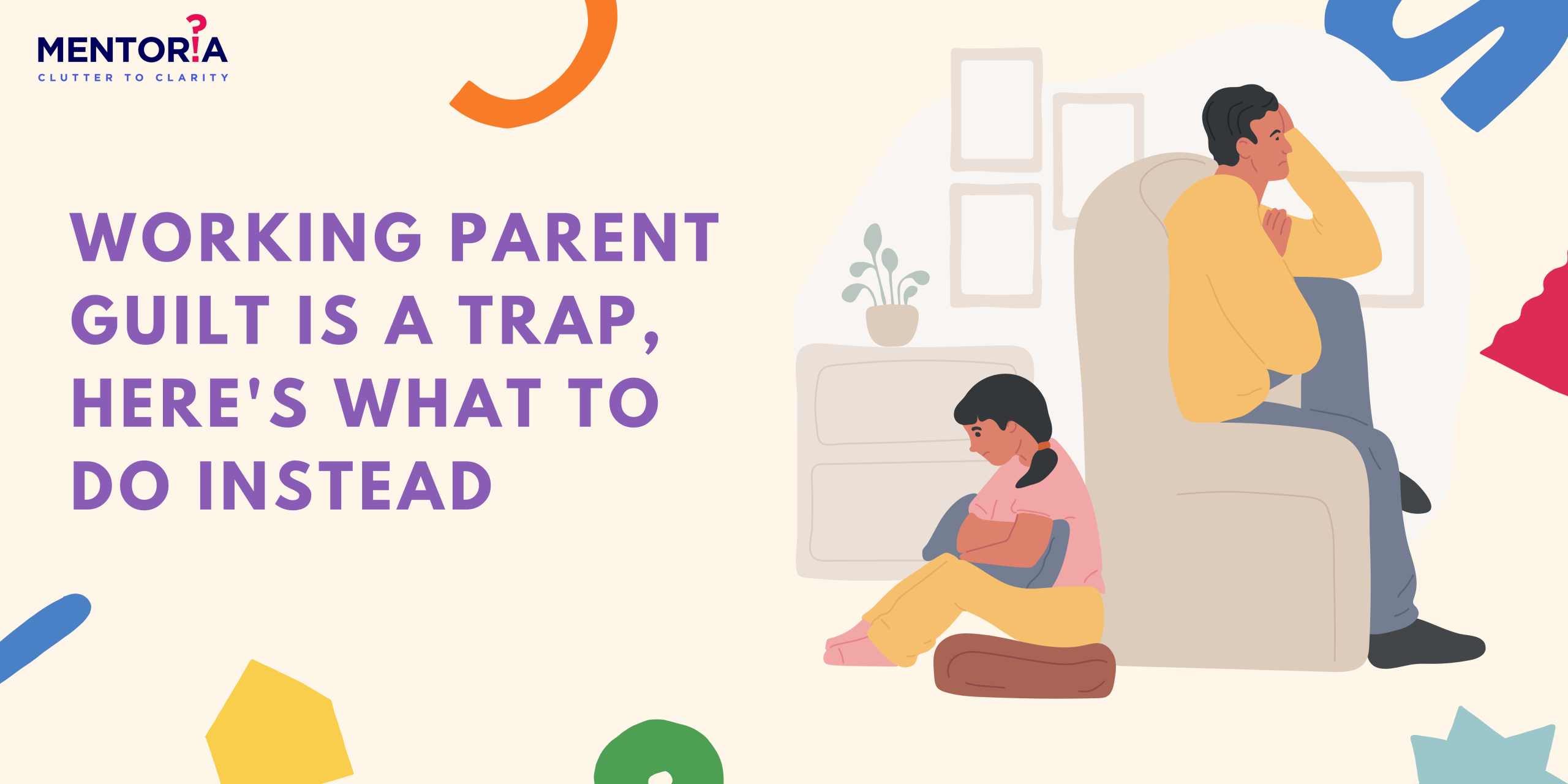Navigating Parenthood In The Digital Era: A Modern Parent’s Guide

We’ve stepped into the era of smartphones, social media shindigs, and video games that are basically the modern-day equivalent of a secret code. Parenting just got a whole new level of interest, didn’t it? Gone are the days when the biggest parenting challenge was convincing your kid to eat their veggies. Now, it’s all about navigating the digital world. Screens are the new sidekicks for our little ones, and social media is like the cool kid’s club where friendships are forged and memes are the secret handshake.
So, let’s explore strategies to navigate the digital age without losing the essence of good, old-fashioned parenting.
Parenthood In The Digital Era
Understanding Screen Time
In this digital age, finding the right balance for screen time is vital. Kids aged 8-12 spend an average of 4-6 hours daily on screens, impacting their development. It’s about recognising the value of digital engagement while ensuring it doesn’t overshadow essential activities like outdoor play, homework, or family time. Practical tips involve setting clear guidelines, establishing screen-free zones, and fostering open communication. By understanding the impact of screen time on your child’s well-being, you can create a healthy digital environment that complements their overall growth.
- Setting Clear Limits: Establish reasonable daily limits for screen use based on age.
- Encouraging Variety: Encourage a balance between digital activities and other essential pursuits.
- Open Communication: Foster a safe environment where your child feels comfortable discussing their digital experiences.
- Quality Content: Guide your child towards educational and age-appropriate digital content.
- Lead by Example: Demonstrate healthy screen habits as parents to set a positive example.
Ensuring Cyber Safety
Navigating the online world demands a proactive approach to cyber safety. With 70% of kids encountering explicit content by age 8, safeguarding their digital experiences is paramount. Parents can play a crucial role by staying informed about online activities, using parental controls, and fostering open communication. Establishing trust and educating children about the potential risks empowers them to make safe choices online. This practical guide aims to equip parents with actionable steps to create a secure online environment, ensuring that the digital space becomes a tool for learning and connection, not a source of concern.
- Educate About Risks: Have age-appropriate conversations about online risks and the importance of privacy.
- Parental Controls: Implement and regularly update parental controls on devices to restrict inappropriate content.
- Stay Informed: Keep yourself informed about the platforms and apps your child uses.
- Encourage Reporting: Teach your child to report any uncomfortable online encounters immediately.
- Build Trust: Establish trust by respecting your child’s privacy while emphasising the importance of responsible online behaviour.
Navigating Social Media
Social media is an integral part of today’s teenage experience, with all kids having smartphones. Navigating this landscape requires understanding the positives and negatives. Parents can guide their children by discussing responsible posting, setting privacy settings, and encouraging a healthy online presence. This section provides practical insights into monitoring social media use, fostering open communication, and instilling a sense of digital responsibility. By actively participating in your child’s social media journey, you can help them navigate this digital realm positively and ensure that these platforms contribute to their social development rather than hinder it.
- Privacy Settings: Assist in configuring privacy settings to control the audience for your child’s posts.
- Regular Check-ins: Periodically discuss your child’s social media interactions, ensuring a safe online environment.
- Model Positive Behavior: Demonstrate responsible social media use as a guide for your child.
- Educate on Reputation: Help your child understand the permanence of online content and its impact on their reputation.
- Establish Guidelines: Collaboratively set guidelines on sharing personal information and appropriate online behaviour.
Balancing Gaming Habits
Video games are a ubiquitous part of modern childhood, with 97% of teenagers regularly engaging in them. Striking a balance between enjoying the benefits and avoiding potential drawbacks is crucial. This section explores practical approaches to managing gaming habits, including setting time limits, choosing age-appropriate games, and encouraging breaks. By fostering a healthy relationship with gaming, parents can ensure that it remains a source of entertainment and even learning, rather than an all-consuming activity. This guide empowers parents to navigate the gaming landscape with confidence, promoting responsible and balanced gaming habits for their children.
- Set Time Limits: Establish clear time limits for gaming sessions to prevent excessive screen time.
- Age-Appropriate Games: Ensure the games your child plays are suitable for their age and maturity level.
- Encourage Breaks: Encourage breaks during gaming sessions to prevent prolonged periods of sedentary behaviour.
- Promote Offline Activities: Introduce and encourage a variety of offline activities to diversify your child’s interests.
- Involve in Choices: Involve your child in selecting games that align with your family values and their preferences.
Effective Digital Communication
Communication in the digital age involves navigating a landscape filled with texting, emojis, and memes. Understanding this digital language is essential for maintaining effective communication with your child. This section encourages parents to embrace the digital modes of expression while emphasising. the continued importance of face-to-face conversations. It offers insights into decoding digital communication, fostering understanding between generations, and ensuring that both parents and children feel heard and connected in this ever-evolving language of emojis and abbreviations.
- Learn Digital Language: Familiarise yourself with digital communication tools and language.
- Encourage Openness: Create an atmosphere where your child feels comfortable expressing themselves digitally.
- Face-to-Face Time: Balance digital communication with regular face-to-face conversations.
- Teach Etiquette: Educate your child on digital communication etiquette, including tone and appropriateness.
- Be Available: Be consistently available for your child, both digitally and in person, for meaningful conversations.
Embracing Digital Learning
Digital learning has become a significant component of modern education, impacting homework and beyond. Acknowledging the positive impact of technology on education, this section explores practical ways to leverage digital tools for academic growth. It involves staying involved in your child’s digital learning journey, understanding the platforms they use, and creating a conducive digital learning environment at home. By embracing the potential of digital education and addressing any challenges that may arise, parents can ensure their children thrive academically in the digital age, leveraging technology as a powerful educational tool.
- Stay Informed: Keep abreast of the digital tools and platforms used in your child’s education.
- Create a Dedicated Space: Establish a designated, quiet space for your child’s digital learning activities.
- Provide Support: Offer assistance when needed but encourage independent problem-solving.
- Encourage Breaks: Ensure your child takes breaks to prevent digital fatigue during extended learning periods.
- Regular Check-ins: Discuss your child’s digital learning experiences regularly, addressing any concerns or challenges.
Unplugging For Real-Life Connections
Amidst the digital era, there’s a need to rediscover the joys of real-world experiences. This section advocates for unplugged adventures, emphasising the importance of balancing screen time with activities that foster physical and social development. Whether it’s board games, outdoor escapades, or simply spending quality time together, unplugging allows families to create lasting memories. By finding this balance, parents can ensure that their children appreciate the richness of both the digital and analog worlds, fostering a well-rounded and holistic approach to life in the modern age.
- Family Activities: Plan regular family activities that involve minimal or no screen time.
- Set Device-Free Times: Designate specific times during the day when screens are off-limits.
- Outdoor Exploration: Encourage outdoor activities and adventures to promote physical well-being.
- Quality Time: Allocate dedicated time for quality interactions without any digital distractions.
- Educate on Balance: Help your child understand the importance of balance between screen time and real-life experiences.
The Digital Parenting Landscape
Parenting in the digital age requires adaptability, awareness, and practical strategies. As we navigate this landscape, let’s not lose sight of the core principles of parenting – communication, guidance, and setting boundaries. By embracing the opportunities and addressing the challenges, we can ensure our children grow up in the digital age with a healthy balance between the virtual and the real.
We’re here to provide you with all the help! Kick-start your journey with Mentoria and discover the right fit for you. Feel free to call us to speak to our career mentors and choose the right guidance plan that suits your needs. Mentoria’s career guidance programme enables you to choose your perfect fit from 3 streams, 850+ courses, and 12,000+ careers, and discover what will bring out the best in you.









